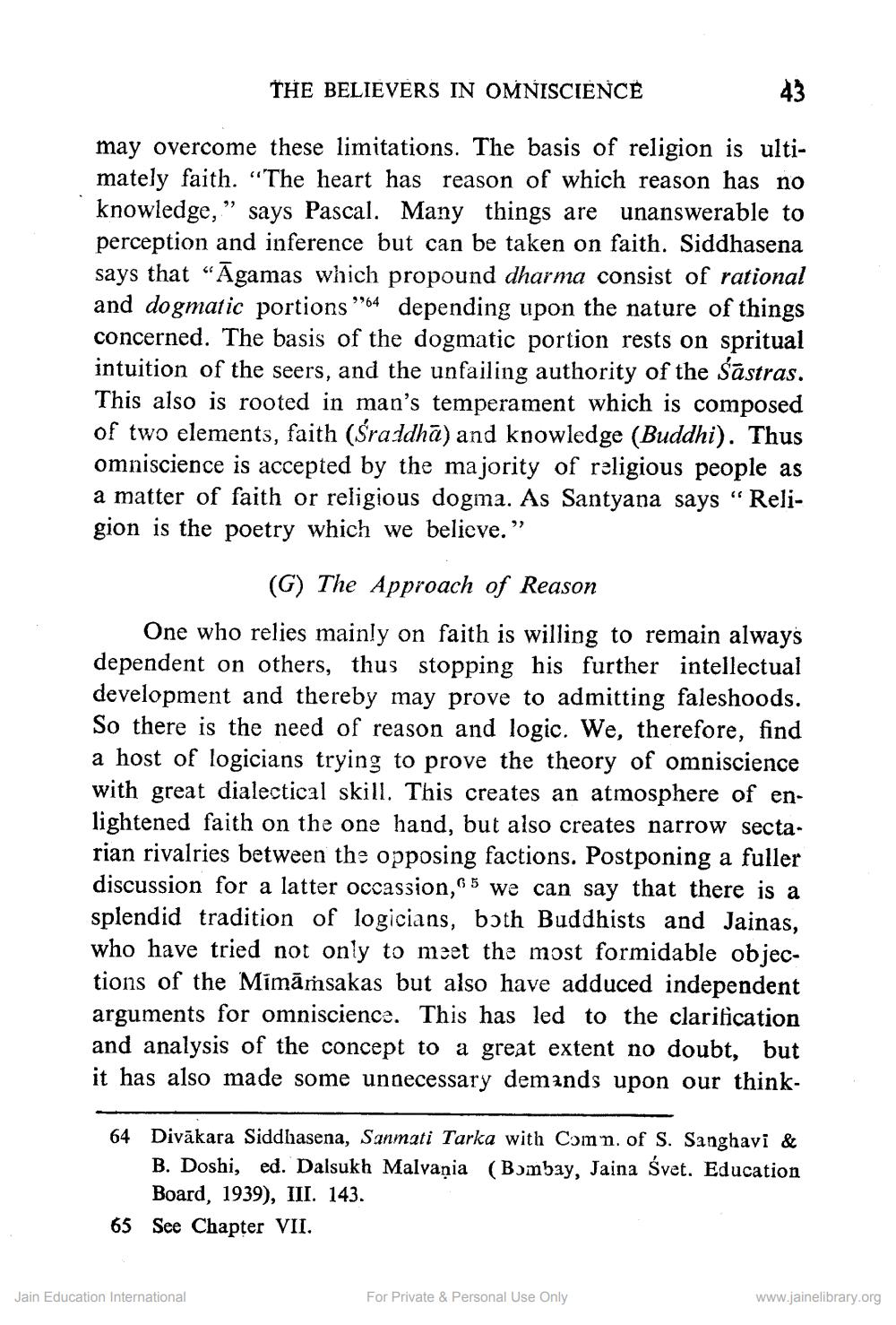________________
THE BELIEVERS IN OMNISCIENCE
may overcome these limitations. The basis of religion is ultimately faith. “The heart has reason of which reason has no knowledge,” says Pascal. Many things are unanswerable to perception and inference but can be taken on faith. Siddhasena says that “Agamas which propound dharma consist of rational and dogmatic portions 64 depending upon the nature of things concerned. The basis of the dogmatic portion rests on spritual intuition of the seers, and the unfailing authority of the Sastras. This also is rooted in man's temperament which is composed of two elements, faith (Sraddhā) and knowledge (Buddhi). Thus omniscience is accepted by the majority of religious people as a matter of faith or religious dogma. As Santyana says "Religion is the poetry which we believe.”
(G) The Approach of Reason One who relies mainly on faith is willing to remain always dependent on others, thus stopping his further intellectual development and thereby may prove to admitting faleshoods. So there is the need of reason and logic. We, therefore, find a host of logicians trying to prove the theory of omniscience with great dialectical skill. This creates an atmosphere of enlightened faith on the one hand, but also creates narrow sectarian rivalries between the opposing factions. Postponing a fuller discussion for a latter occassion,65 we can say that there is a splendid tradition of logicians, bɔth Buddhists and Jainas, who have tried not only to meet the most formidable objections of the Mimāṁsakas but also have adduced independent arguments for omniscience. This has led to the clarification and analysis of the concept to a great extent no doubt, but it has also made some unnecessary demands upon our think
64 Divākara Siddhasena, Sanmati Tarka with Comn. of S. Sanghavi &
B. Doshi, ed. Dalsukh Malvaņia (Bɔmbay, Jaina Śvet. Education
Board, 1939), III. 143. 65 See Chapter VII.
Jain Education International
For Private & Personal Use Only
www.jainelibrary.org




